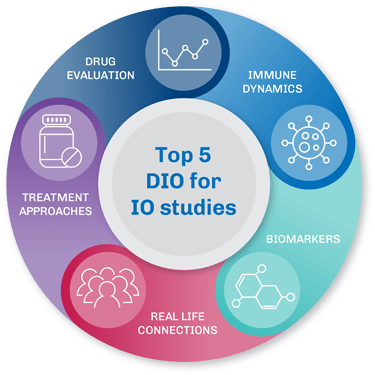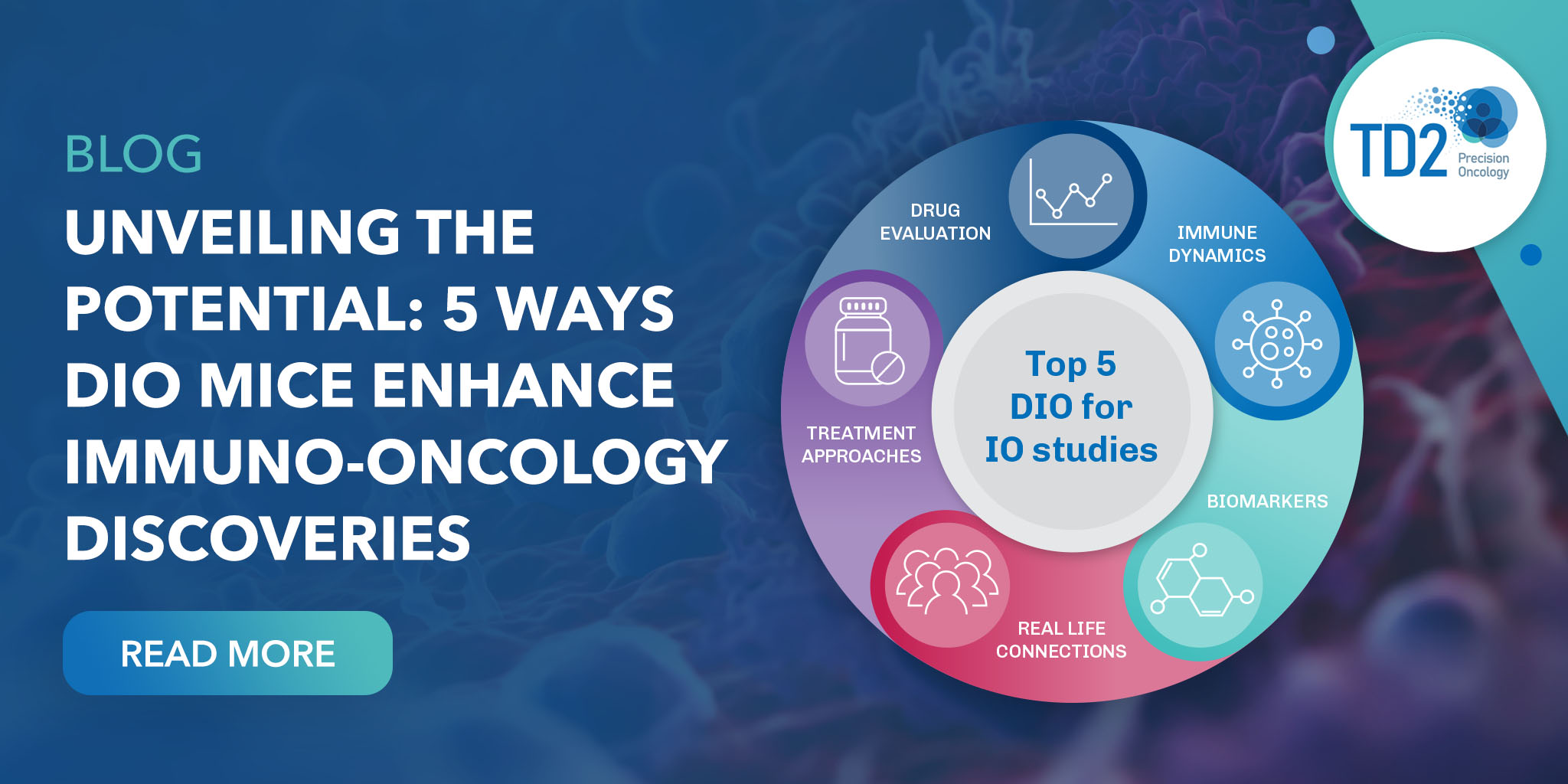In the sphere of immuno-oncology research, a powerful tool has emerged - the Diet-Induced Obesity (DIO) mouse model. These models provide researchers a practical route to understanding the connections between obesity, immunity, and cancer treatment. The real value of DIO mice lies in their ability to reflect human-like responses, marking a new phase of discovery. Below are the top 5 reasons researchers should be incorporating DIO mice into the preclinical evaluation of immuno-oncology treatments.

1. Real-Life Connection:
Studies gain relevance in understanding obesity's impact on cancer patients. By combining DIO mice with syngeneic models, researchers replicate the clinical scenario of obese cancer patients, enabling accurate evaluation of immuno-oncology therapies. This approach sheds light on the intricate interplay between obesity, immune responses, and cancer treatment, guiding the development of personalized strategies for improved patient outcomes and advancing the comprehension of obesity's role in cancer.
2. Precise Drug Evaluation:
DIO mouse models are instrumental in gauging drug efficacy for obesity-related conditions, including cancer. These models simulate obesity-induced physiological changes, aiding researchers in evaluating how drugs interact and perform within an obese context. They help uncover metabolic alterations affecting drug response and facilitate the testing of targeted therapies. Using DIO mice, scientists can enhance drug screening, predict clinical outcomes, and refine treatment strategies for obesity-related diseases, ultimately improving patient care.
3. Shedding Light on Immune Dynamics:
DIO mouse models provide a window into the complex world of immune interactions affected by obesity. By studying these models, researchers uncover how obesity triggers chronic inflammation, alters immune cell behavior, and impacts cytokine profiles. Insights gained shed light on the dynamic relationship between obesity and immune responses, informing strategies to address obesity-induced immune dysregulation and develop targeted therapies. DIO mice offer a vital tool to explore immune mechanisms, ultimately enhancing our understanding of obesity-related health complications and immune oncology therapies performance.
4. Tracing Biomarkers:
DIO mice serve as invaluable models for identifying obesity-related biomarkers. Through metabolomic, transcriptomic, and proteomic analyses, researchers uncover molecular signatures indicative of metabolic dysfunction, inflammation, and disease risk. By correlating these biomarkers with obesity-related conditions, scientists gain insights into early diagnostic indicators and treatment responses. DIO mice enable the discovery of crucial biomarkers that hold the potential for improved obesity management and personalized interventions, bridging the gap between research findings and clinical applications.
5. Guiding Treatment Approaches:
DIO mice are instrumental in refining treatment strategies for obesity-related issues. Researchers can optimize drug regimens and timing for better outcomes, aided by long-term tracking and mechanistic insights. DIO findings inform human trials, translating preclinical findings into practical treatment protocols.
In Conclusion:
DIO mice provide a practical avenue for comprehending the intricate connections between obesity, cancer, and the immune system. These models play a pivotal role not only in drug testing but also in identifying valuable biomarkers, thus providing key information for the advancement of immunotherapy treatments.
References:
https://www.ncbi.nlm.nih.gov/pmc/articles/PMC4296516/
https://www.ncbi.nlm.nih.gov/pmc/articles/PMC7188530/
https://pubmed.ncbi.nlm.nih.gov/30670818/
https://pubmed.ncbi.nlm.nih.gov/17179478/
https://www.ncbi.nlm.nih.gov/pmc/articles/PMC6787563/



